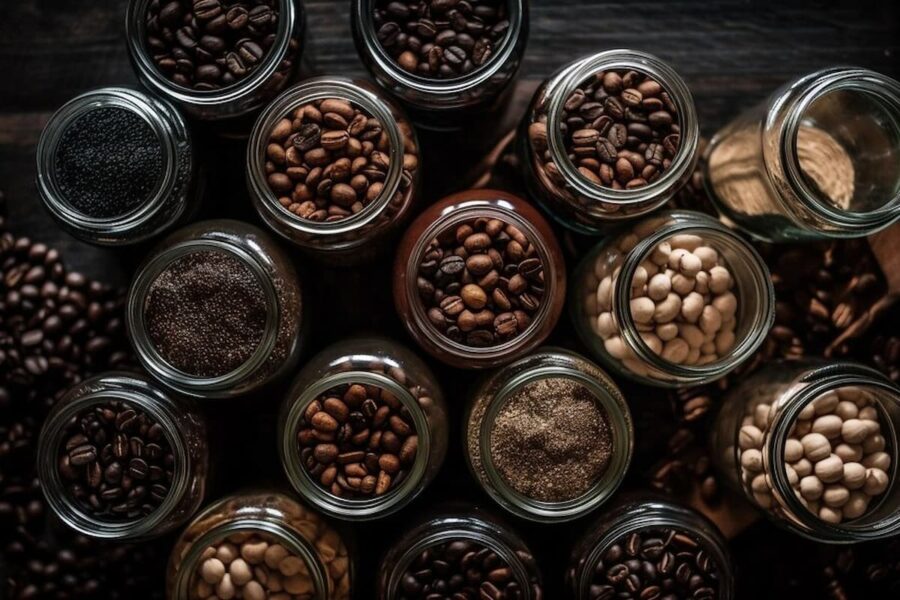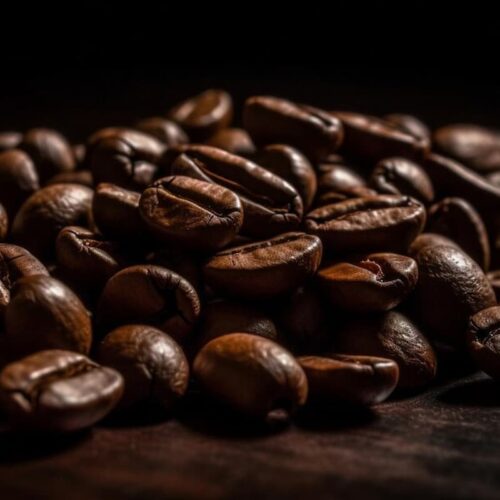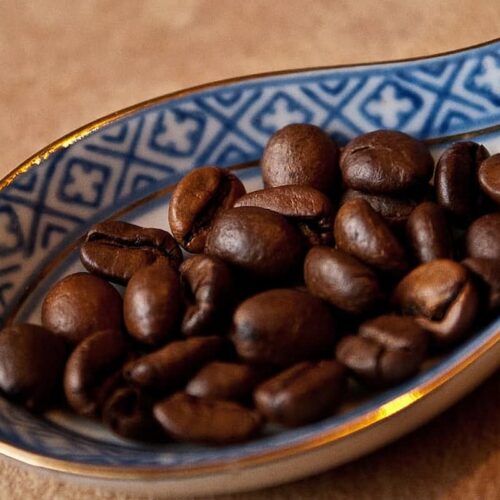In the world of exotic and rare coffees, two names stand out: Jacu Bird Coffee and Kopi Luwak.
Both of these coffees are known for their unique processing methods, where animals play a crucial role in fermentation before the beans are collected and roasted.
While some coffee enthusiasts consider them a delicacy, others question the ethics and sustainability of these production methods.
This article explores the origins, processing methods, flavor profiles, ethical concerns, market perceptions, and the growing controversy surrounding these coffees.
Origins and Processing Methods
Kopi Luwak originates from Indonesia and is one of the most famous animal-processed coffees in the world.
It is produced using beans that have been eaten and excreted by the Asian palm civet, a small nocturnal mammal.
The civets select only the ripest coffee cherries to eat, and during digestion, the cherries undergo natural fermentation.
Once excreted, the beans are collected, thoroughly washed, dried, and roasted before being sold as a specialty product.
Jacu Bird Coffee, on the other hand, is native to Brazil and involves a similar but distinct process.
The Jacu bird, a native species found in the Atlantic Forest, naturally feeds on ripe coffee cherries.
As with the civet, the beans undergo fermentation during digestion and are later excreted, collected, cleaned, and processed.
The main difference between the two coffees is the type of animal involved and the environment in which they are produced.
Jacu Bird Coffee is considered a more ethical alternative since the birds roam freely and are not confined for production purposes.
Flavor Profiles and Unique Characteristics
One of the main selling points of both Jacu Bird Coffee and Kopi Luwak is their distinct flavor profiles, shaped by the digestive process of the animals.
The enzymes in the digestive tracts of the civets and birds break down certain proteins in the coffee beans, which influences the taste and texture of the final brew.
Kopi Luwak is often described as having a smooth, earthy flavor with low acidity and a hint of chocolate.
Because of the fermentation that occurs in the civet’s digestive system, the beans develop a softer body and a slightly caramelized taste.
However, the specific flavor can vary based on the quality of the beans and the environment where they were grown.
Jacu Bird Coffee, in contrast, has a lighter and fruitier profile.
It often exhibits nutty notes, hints of sweet aniseed, and a delicate floral aroma.
The natural selection process of the Jacu bird, which only eats the ripest cherries, contributes to the balanced and refined taste of this coffee.
Ethical and Sustainability Concerns
While both Jacu Bird Coffee and Kopi Luwak are considered luxury products, they come with significant ethical concerns that have led to widespread debate.
Kopi Luwak, in particular, has been criticized due to the exploitation of civets in commercial farming operations.
Originally, this coffee was collected from wild civets, but due to high demand, many producers have turned to factory farming.
In some cases, civets are kept in cramped cages, force-fed coffee cherries, and subjected to poor living conditions.
This not only affects the welfare of the animals but also impacts the quality of the coffee, as stressed and unhealthy civets may not select the best cherries naturally.
Jacu Bird Coffee is generally seen as a more ethical alternative because the birds are not confined.
Since they live in their natural habitat and feed on coffee cherries as part of their diet, their role in coffee production is entirely voluntary.
Despite this, concerns remain about how increased demand could affect local ecosystems and bird populations.
Market Perception and Pricing
Due to their rarity and unconventional production methods, both Jacu Bird Coffee and Kopi Luwak command extremely high prices in the global coffee market.
Kopi Luwak is often marketed as one of the most expensive coffees in the world, sometimes reaching hundreds of dollars per pound.
However, its reputation has been affected by reports of unethical farming practices and fraudulent products.
Many coffee enthusiasts argue that the quality of Kopi Luwak does not always justify the price, especially when considering alternative specialty coffees that achieve superior flavors through ethical and sustainable means.
Jacu Bird Coffee, while also expensive, has gained a reputation for being a cleaner and more ethically responsible option.
Its production remains limited, and it is often sought after by those who want a unique tasting experience without contributing to animal exploitation.
The Science Behind Animal-Processed Coffee
One of the reasons animal-processed coffees have gained popularity is the belief that digestion enhances the flavor of the beans.
The fermentation that occurs during digestion is said to break down proteins and remove certain bitter compounds.
This results in a smoother, less acidic coffee with a unique depth of flavor.
However, some coffee experts argue that similar fermentation effects can be achieved through traditional processing methods without the need for animal involvement.
Controlled fermentation in coffee processing stations has proven to enhance flavors in ways that mimic the effects of animal digestion.
Consumer Responsibility and Ethical Alternatives
As awareness of ethical concerns grows, more consumers are questioning whether purchasing animal-processed coffee is justifiable.
Those interested in trying these coffees should ensure they are buying from reputable sources that do not engage in unethical farming practices.
Additionally, there are many high-quality specialty coffees that offer similar smoothness and complexity without animal involvement.
Some experimental fermentation techniques, including barrel aging and controlled yeast fermentation, have shown promise in achieving the same mellow and unique flavors found in animal-processed coffee.
The Future of Animal-Processed Coffee
The demand for rare and exotic coffees continues to grow, leading to innovation in the specialty coffee industry.
While animal-processed coffee remains a niche product, its future may depend on improved transparency and sustainable practices.
Producers who prioritize ethical sourcing and conservation efforts will likely maintain consumer interest while addressing concerns over animal welfare.
At the same time, advances in fermentation and processing methods may provide alternative ways to replicate the unique characteristics of these coffees without relying on animals.
How to Brew Jacu Bird Coffee and Kopi Luwak for the Best Experience
Due to their rarity and unique flavor profiles, both Jacu Bird Coffee and Kopi Luwak require careful brewing to fully appreciate their complexities.
Using the wrong brewing method can result in a flat or unremarkable cup, wasting the distinct characteristics that make these coffees so special.
The best brewing methods for these coffees depend on their processing style and natural flavors.
- Pour-Over (V60 or Chemex): This method is ideal for highlighting the delicate floral and fruity notes of Jacu Bird Coffee. Using a medium-fine grind and slowly pouring hot water in circular motions ensures even extraction and a clean, vibrant cup.
- French Press: If you prefer a fuller-bodied experience, the French press is an excellent choice for both Jacu Bird and Kopi Luwak. The immersion process extracts more of the oils and complex flavors, enhancing the coffee’s depth.
- Espresso: Kopi Luwak, with its low acidity and smooth body, works well in an espresso machine. The high-pressure extraction method enhances the caramelized and earthy notes, resulting in a concentrated and velvety shot.
- Cold Brew: For those looking to explore new flavors, cold brew is an option that can emphasize the sweetness and reduce bitterness. Steeping coarsely ground beans in cold water for 12-24 hours produces a refreshing, low-acid coffee that brings out the natural fermentation notes of these exotic beans.
Regardless of the method used, it is important to use fresh, high-quality water and the proper grind size to maximize the potential of these rare coffees.
Should You Try Animal-Processed Coffee?
The question of whether one should try Jacu Bird Coffee or Kopi Luwak is complex, and the answer depends on personal values, taste preferences, and ethical considerations.
For those who seek unique coffee experiences, these coffees offer something truly rare and unconventional.
The fermentation process inside the animals’ digestive tracts does produce distinct characteristics that cannot be easily replicated by traditional coffee processing.
However, it is also important to acknowledge the ethical concerns surrounding these coffees.
Kopi Luwak, in particular, has faced significant criticism for the mistreatment of civets in captivity.
Those interested in trying it should seek sources that guarantee wild-harvested beans and ethical practices.
Jacu Bird Coffee, while less controversial, still raises questions about sustainability and how increased demand could impact local bird populations.
Ultimately, coffee enthusiasts should weigh the experience of drinking these rare coffees against the moral and environmental considerations involved in their production.
For those who choose not to consume animal-processed coffee, there are many specialty-grade coffees with similarly refined flavors that are produced through sustainable and ethical means.
Conclusion
Jacu Bird Coffee and Kopi Luwak are among the most unusual and debated coffees in the world.
While their production methods contribute to their mystique, ethical and sustainability concerns raise important questions about their place in the specialty coffee industry.
Consumers who choose to explore these coffees should do so with an awareness of the ethical implications and consider supporting sustainable alternatives.
The true value of coffee lies not just in its rarity but in the care, quality, and ethical integrity behind its production.




